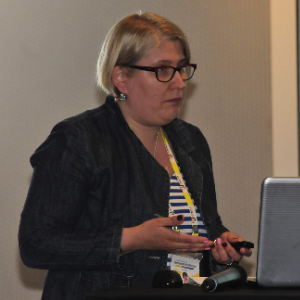Title : Identification of cytokines/chemokines in the blood serum and cerebrospinal fluids after transplantation of bone marrow MSCs to ALS patients.
Abstract:
Neuroinflammation is a major player in the course of amyotrophic lateral sclerosis (ALS), and is characterized by astrocyte and microglial activation, T cell infiltration and the overproduction of proinflammatory factors. Among many components/molecules engaged in the inflammatory response, cytokines/chemokines are involved in pathogenesis of ALS. Therefore, the goal of the study was to ivestigate proteome profile of cytokines/chemokines in blood serum, cerebrospinal fluid (CSF) after/before transplantation of bone marrow-derived mesenchymal stem cells (BM-MSCs) to ALS patients, and find out potential biomarkers associated with the course of the disease.
Blood and CSF samples were drawn from 10 ALS patients before BM-MSCs transplantation and after (performed in 2-months intervals) and 10 patients with other non-inflammatory neurological disorders (NND) served as a control group. The experiment has been approved by the Ethic Committee of University of Warmia and Mazury (UWM) in Olsztyn, and trial has been registered under NCT02881489. Identification of cytokines and chemokines has been checked in blood serum and CSF using Huamn XL Cytokine Array Kit (R&D Systems, Minneapolis, MN). Chemiluminescence was detected by ChemDoc MP imaging system, and mean pixel density was analyzed by the Image Lab software (4.1. Bio-Rad Laboratories). Subsequently, the concentration of interleukin/IL/-17 and 18 and chemokin CCL2 and CXCL12 has been checked in the blood serum and CSF using Quantikine ELISA Kit (R&D Systems, MN, USA, # D1700, 7620, DSA00 and DCP00, respectively). Data were statistically analyzed using one-way analysis of variance (ANOVA) followed by the Bonferroni test and statistical significance was defined as a p-values below 0.05.
Cytokines (IL-1α and β, IL-2, 4, 5, 6, 8, 10, 11, 12, 13, 15, 16, 17, 18, 19, 22, 23, 24, 27, 31, 32, 33, 34, INFγ, TGF-α, and TNF-α) and chemokines (CXCL1, 4, 5, 9, 10, 11, 12 as well as CCL2. 3. 4, 5, 7, 17, 19 and 20) were detectable in blood serum and CSF of NND group, ALS patients after and before BM-MSCs transplantation of ALS patients. In all human physiological fluids, most of identified factors were present on the lower level, only concentrations of IL-17 and 18 as well as CXCL12 and CCL2 were increased. This up-regulation has been confirmed by ELISA method, but not in the case of IL-17. Both, Proteome Profiler and ELISA analysis indicate that IL-18, CXCL12 and CCL2 levels were the greatest (P<0.05) in the blood serum and CSF of ALS patients, than in the fluids of NND group and ALS patients after BM-MSCs transplantation.
Obtained data suggest that the most increase in the levels of IL-18, CXCL12 and CCL2 in blood serum and CSF of ALS patients, may serve be a prognostic biomarkers during the course of the disease. What is more, lower levels of these three factors in the studied fluids of ALS patients after BM-MSCs transplantation may indicate the therapeutic action of these cells.
Supported by the National Centre for Research and Development (No: STRATEGMED/1/234261
Specific Items:
- 1.Neuroinflammation is a major player in the course of amyotrophic lateral sclerosis.
- 2.Upregulation of IL-18, CXCL12 and CCL2 in the blood serum and CSF of ALS patients may serve as a prognostic tool during the course of the disease.
- 3.Autological transplantation of bone marrow derived mesenchymal stem cells to ALS patients may offer regeneration effect in the ALS therapy.




